Joshua Becker's Blog, page 58
June 14, 2020
Big Updates to Clutterfree
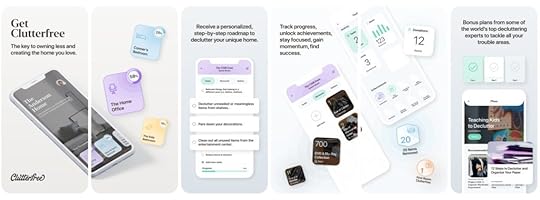
Getting right to the point: I’ve made a few changes to my decluttering app, Clutterfree, and I wanted to let you know about them.
As a reminder, Clutterfree is an app that I started working on last year. I’m on a mission to help as many people as possible own less and live more. This is another tool to help people accomplish that in their home and life.
If you’re already living a minimalist life (which many of you are), this app wouldn’t be particularly helpful to you. But if you’re new to minimalism, or struggling to declutter your home, I built the app to help you specifically.
Now, on to the updates:
1. The biggest update? You can now try the app FREE for 14 days before deciding whether or not Clutterfree is right for you.
Simply, I noticed that a 7 day trial period was not long enough for people to test out the app if would be helpful to them. So I decided to extend it.
2. If the app is right for you (like it has been for more than 70% of free trial users so far), there’s more good news! I’ve lowered the price from $5.99/month to just $3.99/month.
“Joshua, why isn’t your app free?”
As much as I’d love to make Clutterfree available at no cost to anyone who wants it, I just can’t. For two reasons:
I invested a LOT in making this app because I wanted it to be better than any other decluttering app currently available. A team of developers had to literally write the code and design the app from the ground up.
As a result, Clutterfree is the very first decluttering app to literally create a personalized, room-by-room to-do list for your home. There are considerable costs to maintain and update the app.
Clutterfree tracks your progress, unlocks achievements, lets you document donations, and compare Before/After photos. It also includes motivational articles and even bonus plans (how to organize paper documents, etc) from some of the world’s top organizing experts.
More importantly, there’s a lot of research that suggests by paying for an app like Clutterfree—even as little as $3.99/month—you’re more likely to use it and follow through. Clutterfree would be no good to you (or to me) as another unopened icon in the app graveyard on your phone.
With 2 full weeks to try it out, you have plenty of time to start using it before you decide whether living in a clean, visually satisfying, relaxing space is worth $3.99/month—or less, if you choose a longer subscription plan.
You can download Clutterfree on the App Store here , or get it on Google Play here .
**Please note, both Apple and Google require us to ask users to choose a subscription plan before beginning their free trial. Rest assured that you’ll always be notified well before you’re charged, and you can cancel your subscription anytime.
A user named Stephanie reviewed the app on Google Play. She had this to say:
“Well worth the subscription! Perfect app for this challenging time. We all know that physical clutter = mental clutter. This app helps me tackle the clutter we have in our home. We’re all stuck at home anyway so this app couldn’t have come at a better time. Looking forward to a clutter-free home soon ❤️”
There are a lot more great reviews from people who are loving Clutterfree, but I want to keep this post short.
If you’re looking for a new approach to decluttering, or need a minimalist reset in your home, I encourage you to give it a try. Or consider recommending it to a friend today.
Download Clutterfree, start your free 14-day trial, and see what happens when you start decluttering your home step by step.
All the best, Joshua
3. PS: Another really exciting change we made to the app? It’s now available worldwide! Thank you for your patience while we rolled it out slowly. No matter where you call home, it can now be clutterfree.

June 13, 2020
Encouraging Simplicity. Weekend Reads.
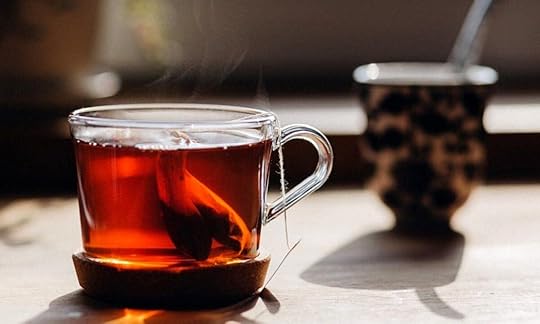
Never underestimate the importance of removing stuff you don’t need.
Encouragement provides us with motivation to persevere. It invites us
to dream dreams of significance for our lives. And it begs us to work
diligently with optimism and promise.
Overcoming the pull of consumerism is a difficult challenge
regardless of our stage in life. Simplicity requires encouragement. To
that end, I hope you will find motivation in these articles below.
Each post was intentionally chosen to inspire simplicity in your life. For maximum effect, find a quiet moment this weekend and enjoy them with a fresh cup of coffee or tea.
Quarantine has changed us — and it’s not all bad | Vox by Sigal Samuel. Here are eight new habits people want to keep post-lockdown. #1? Reducing consumerism.
Looking Past the Likes | No Sidebar by Julia Ubbenga. Life is too short to live it trying to impress others. Be true to yourself – your life will be better unmeasurably for it.
The Afro Minimalist’s Small Apartment Is a Peaceful & Practical Oasis | Apartment Therapy by Liz Calka. “Do you need this?” “Do you love this?” “Will you faint if your daughter and/or her friends accidentally destroy this?” These are the questions Christine Platt asks herself before any new purchase.
Mother who loved ‘mindless shopping’ says adopting a zero-waste lifestyle has reduced her anxiety | Daily Mail by Claire Toureille. Since I’ve embraced minimalism, it’s helped me to be more mindful, to clear my mind and think more clearly.
9 Reasons Buying Stuff Will Never Make You Happy | Joshua Becker on YouTube

June 10, 2020
Not Your Grandma’s Minimalism, or Your Neighbor’s

One unfortunate belief that keeps people from pursuing minimalism is the assumption that there are strict rules and guidelines to the lifestyle. But nothing could be further from the truth.
Let me try to break that myth for you:
Minimalism will always look different from person to person.
Find freedom to make it yours in a way that works for you and your family. Minimalism looks different in both practice and process.
In Practice
Consider how these different factors might affect the possessions you need:
Geography. Somebody who lives in a city will likely own different things than someone who lives in the suburbs, or someone who lives in a rural setting.
If you live in the city, you may not need a specific mode of transportation because public transit is nearby. If you live in the suburbs, that might not be a possibility. Or if you live in a rural setting, even further away from a store, your needs will change and the possessions you keep on-hand will differ.
Your Household. Minimalism will also look different based on your family or household. A single person in their twenties is going to own something different than a young family with children. And a family with young children is going to need different possessions than a family with teenagers. Or even empty nesters.
Your specific stage of life will affect your practice of minimalism in significant ways.
Your Career. Minimalism also looks different based on our careers, our work, or our job.
A minimalist blogger is going to own something different than a minimalist dentist, or a minimalist architect, or a minimalist schoolteacher, or even a minimalist farmer.
There is little benefit to comparing our possessions in this way. We may find motivation or inspiration in the story of the young minimalist YouTuber, but trying to apply their strict rules to your unique situation is rarely helpful.
I believe that anyone, regardless of their occupation, can pursue minimalism. It’s just going to look very different from one person to another.
Your Passion or Purpose. The good that we feel called to accomplish in the world may also impact the possessions that we own.
In 2015, I founded The Hope Effect, a nonprofit organization changing how the world cares for orphans. Because of my desire to do this work well, there are some things I own that I might not if this wasn’t a passion of mine.
Likewise, your passion for serving a purpose may cause you to own different items than your minimalist neighbor down the street.
Your Hobbies. Hobbies can become a source of clutter in our homes and lives—especially if we try to do too many at one time.
But the fact remains that hobbies are beneficial to us. They bring us joy, or peace, or entertainment, or exercise, or simply serve as a distraction. In theory and in practice, they help us live bigger, more intentional lives.
As a result, our hobbies will impact the items we own—even as we seek to live intentional lives.
In Process
It is equally important to realize that minimalism looks different in process. How we get there changes from person-to-person and family-to-family.
There are some people who hear about minimalism, rent a dumpster, and throw out everything over the course of a weekend. But those people are few and far between.
And there are some people who just seem to be minimalist at birth.
But for most people who choose to live a minimalist life, it takes a little more time. It also takes a little more intentionality, a little more strategy, a little more effort to wrestle with emotions that emerge.
For us, it took about three months to go through the “lived-in areas” of our home (living room, bedrooms, bathrooms, kitchen, etc.). But it took us nine months to minimize all our possessions if you count the basement and garage and storage shed in the backyard.
In fact, we moved into a smaller house three years later, and got rid of even more things! So the time frame may vary significantly from one person to another.
The process can also look different in more ways than just time.
Some people can read one book or one blog post and that’s all they need to get started. Others need a little more help or someone to come alongside them in the process. In fact, that’s one of the reasons I created the Clutterfree App—it’s just another tool that might be helpful to someone seeking to own less.
Additionally, different people struggle to minimize different items.
One person might struggle with books or sentimental items, while someone else might have a hard time deciding what to do with their yarn stash or excess hobby supplies.
I want to encourage you today. Minimalism is a lifestyle with countless benefits. Owning less means less cleaning, less burden, less anxiety, and less stress each and every day.
You can enjoy freedom.
Minimalism will look different for you than it does for me, both in practice and in process.
But always remember, as long as you’re moving in the right direction, you’re moving in the right direction.

June 7, 2020
Your Stuff is Only Taking Up Space

There’s an old joke about treadmills. It goes something like this:
One time I bought a treadmill, now it’s the most expensive clothes hanger in my home.
People laugh—they know it’s true.
The fact is we often buy items with good intentions but never end up using them.
Of course, in the scenario above, if the treadmill was only serving as an extra clothes hanger in the corner of our bedroom, that would be one thing. But the reality is, that unused item is more than a hanger.
It is taking up space—lots of it.
It is taking up valuable physical space in your home.
It’s another physical object, in your home, that you need to dust and clean and vacuum around. It’s just another thing to walk around every day… or pack up when you move.
But more than physical space, it also takes up mental space in your mind.
As Randy Alcorn says, “Every increased possession adds increased anxiety onto our lives.” And that is definitely true.
That unused item (a treadmill or anything) is visual clutter in your home. It calls for your attention every time you walk into the room. It surfaces guilt that you wasted money on it. It causes regret every time you see it. And it serves as a constant reminder that at some point you have to decide what to do with it.
Our unused items are not passive, they are active. They take up space—physical space in our home and mental space in our mind.
Which leads me back to the old adage about treadmills: One time I bought a treadmill, now it’s the most expensive clothes hanger in my home.
There’s a lot of truth in that statement—maybe more than we realize.
If a treadmill is not being used as a treadmill, what is it exactly? If it’s not being used for exercise, is it even a piece of exercise equipment? Maybe it really is just an expensive clothes hanger in the corner of my room.
This question quickly extends far beyond exercise equipment. We could begin to ask the same of other items in our home that are not being used.
For example:
If a shirt in my closet is never being worn, what is it? Is it actually a piece of clothing? Or is it just a piece of fabric hanging in my closet?
If a coffee mug in the back of my cabinet hasn’t been used to serve a drink for as long as I can remember, is it really a coffee mug anymore? Or is it just a piece of ceramic taking up space and gathering dust?
If there are countless tools in my garage that never get used, are they really tools anymore?
If that plastic spatula is never used, what has it become? Just something I need to rearrange every time I open the drawer?
If a book has never been read, is it really a book? I mean, isn’t the purpose of a book to provide education or entertainment? Clearly it isn’t doing that. Is it just a collection of papers, bound together, taking up space on my bookshelf?
If that old desktop computer is never used, what is it? It’s certainly not something I use to solve problems or accomplish tasks. It’s just a big box of electronic components sitting on a desk.
If I never listen to the CDs… if we never use the camping gear… if those old phones are just sitting in a box… if I don’t know what these cords go to… if I never play that piano… if that purse never gets used… if I never wear that pair of shoes…
It seems to me, the items in our home should serve a purpose. They should be used for the reason we purchased them.
If they are not, they are no longer serving their purpose.
They are only taking up space.
Or being used as a really expensive clothes hanger.

June 3, 2020
8 Minimalist Blogs to Encourage You in Your Journey
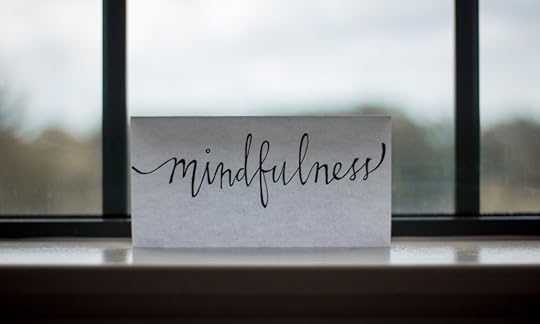
Without a doubt, blogging helped encourage me in my journey toward minimalism. It kept me focused on the process and introduced me to a wide range of voices that inspired me to own less.
I believe strongly that the more we keep inspiration in front of us, the more successful we become in our desire to own less—especially in a world that constantly tells us to own more.
To that end, if you are looking for new or more encouragement, here are eight minimalist blogs you might enjoy:
1. Minimalist Beauty by Dawn Michelle.
Dawn is a wife and mother. She started Minimalist Beauty in 2010 after she recognized her $20,000 in debt was mainly from beauty and style consumerism. She shares about the grace and abundance she’s learned through conscious living. A good place to start.
2. The Wondrous Life by Danae Smith.
Danae shares her journey to live simply, slowly, and in community. In a time where we are inundated with the message of instant gratification; where success is defined by numbers and accolades, and social media has begun to define how we live our lives, she desires to build a space and create a culture that shows another way—a more simple and slow approach to life. A good place to start.
3. Exploring Plan Be by Angelina Lee.
Hailing from a small island in the Caribbean, Angelina is a wife, mother of three and Attorney-at-Law. After her Plan A life left her wanting more, she began exploring her “Plan Be” in which she tries to live more intentionally: a plan with less doing and more being. A good place to start.
4. Ronald L. Banks by Ronald L. Banks.
Ronald is a Spoken Word Poet with a growing YouTube channel and podcast community. His words are meant to challenge you and encourage a different way of thinking. You can find links to his YouTube videos about minimalism, listen to his podcast, or receive his weekly emails on minimalism, habits, and life. A good place to start.
5. Nacho Average Fro by Jessica Malone.
Jessica is a Life and Clutter Coach who helps high-performing professionals escape the work-sleep-repeat trap by decluttering their home, schedule, and finances so they can build a life they love. Jessica and her fiancé are taking their minimalist adventure on the open road to live in a van for one year. A good place to start.
6. The AfroMinimalist by Christine Platt.
Christine is a literacy advocate and passionate activist for social justice and policy reform. Her journey began with the realization that she needed to live with less—and it has since blossomed into a lifestyle and daily practice of living with intention. Her blog is a creative platform chronicling her journey to minimalism. A good place to start.
7. The Frugal Feminista by Kara Stevens.
While paying off $65k in debt, Kara came face-to- face with the limits she had put on herself and the unhealthy beliefs she held about money. So the Frugal Feminista was born to help “brown girls heal, deepen, and strengthen not only their relationship with themselves, but also with their money.” Lots of personal finance info on her site as well as articles about minimalism. A good place to start.
8. The Felicia Renee by Felicia Renee.
Felicia is a 20-something Kentucky native striving to help others live life more simply. Her blog is designed to inspire others to buy less, declutter life, try clean beauty, and travel somewhere exciting. She is currently in the middle of a No-Spend / Just-Save June. A good place to start.
I do hope you will find these wonderful blogs to be as encouraging as I did.

May 31, 2020
5 Ways to Play Without Buying Toys
Note: This is a guest post from Denaye Barahona of Simple Families .
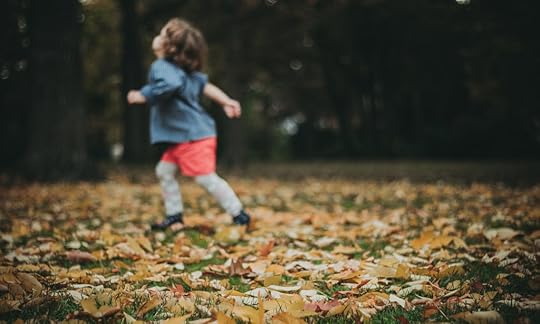
What do you want first, the good news or the bad news?
Let’s start with the bad news. You can’t one-click-Amazon-order your way out of dealing with boredom in childhood. We have all desperately wanted to find the “perfect” toy to keep our children engaged and happy. We may feel as we have found it briefly, but the novelty passes with time and we find our way right back into the online shopping cart.
It’s easy to fall into a cycle.
Kids get bored? Buy them a new toy. When the newness wears off? Rinse and repeat.
Which brings me to the good news, you can put your credit cards away. Because kids don’t need toys to play. In fact, most kids (including my own) spend less time than you think engaging with toys. Don’t get me wrong–they are still busy little bodies. But when you have fewer toys, you will see the creativity and innovation abound. But the play doesn’t revolve around toys and a “playroom”.
In fact, I often spy play that sneaks out of its designated playspace, winds its way through the kitchen, flutters through the backyard, and lands in a secret drawer filled with treasures collected along the way.
Toys can be amazing tools for play, but let’s consider other important ways to play and pass the time without buying toys.
1. Nature
Humans need nature. It doesn’t have to be a proper hike in the woods, just breathing the fresh air and watching a snail cross the sidewalk can do. Turning over a rock to observe some bugs. Feeling the wind on your face. These all count as engaging and enjoyable experiences in childhood. Play in nature can look like balancing on a fallen tree, jumping from stump to stump, and building a fairy house in anticipation of magical visitors.
Play in nature doesn’t have any prescribed way of looking. Some children go “all in” and jump into puddles and others just observe and keep a distance from all creatures. Regardless of how your children are spending this time outdoors, it is valuable. We know that our bodies and our brains need nature to thrive.
2. Imitation
Our children learn through experimenting and exploring, but they also learn through imitation. This means you might find them hanging around your feet when you are trying to take care of “real life” stuff like dishwashing and cooking.
When possible, I challenge you to invite them in and let them imitate you. Although it might not seem playful in the traditional sense, play is defined as “activity engaged in for recreation and enjoyment.” If your children enjoy grabbing a stool and splashing around in the bubbly dishwater, that’s play.
The hardest part is taking a deep breath, slowing down, and making space for this type of play.
3. Loose Parts
Handfuls of sparkly rocks. Collections of international coins. An array of treasures from a recent beachcombing adventure. Scrap pieces of fabric. The list goes on.
You’d be amazed at the play that can come from loose parts that are gathered together. “Loose Parts” play is using natural or scrap materials to create, imagine, and support play activities. This type of play encourages problem-solving and divergent thinking. So next time you go to throw away those toilet paper rolls—think again! The possibilities are endless. And they are free.
4. Books
Much like a stage performance, play often has “scripts” or stories. Children’s play typically involves pretend through acting out these scripts that they either invent or hear in stories. When we keep them surrounded in good books, we are enhancing their literacy skills, but we are also giving them opportunities to launch off in new play scripts based on the books they are reading.
Fill their minds with warm, beautiful stories and you just may see the results in their play.
5. Household items
Minimalists don’t use top sheets on their beds. Or maybe that’s just me? I made that up. When I purchase a set of sheets, the fitted sheet goes on the bed and the flat sheet goes to the kids. That sheet transforms into a fort, a sled to pull each other around, and even a cape or a makeshift sari.
Household items like sheets, towels, and pans can provide incredible options for open-ended play in childhood.
But I’m telling you something that your children already know: Play is everywhere in our lives. Our children have a magical way of bringing it to everything that they do.
Our job as parents is to start seeing that play in the most unexpected ways and places. When we do that, we can let go of the need to buy all the toys to keep them happy. Because with fewer toys, children can actually do so much more.
***
Denaye Barahona Ph.D. is a mother of two and the founder of Simple Families , a podcast and community for families interested in minimalism with kids, family wellness, and positive parenting. Denaye has a doctorate in child development and over a decade of experience in coaching parents to more harmonious lives with children.
—
If you would like to know more about this topic, our new issue of Simplify Magazine takes a deep dive into the theme of Work + Play. Get a lifetime subscription to the magazine here.

May 29, 2020
Inspiring Simplicity. Weekend Reads.
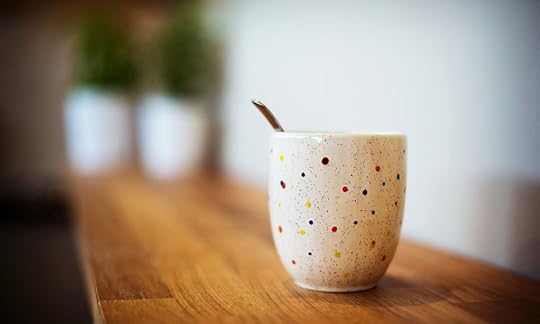
F ill your life with stories to tell, not stuff to show.
The simplicity/minimalism movement is a beautiful community. And I enjoy any opportunity to promote writing that encourages people to live more by owning less.
So fix yourself a nice warm cup of coffee or tea. Find a quiet moment this weekend. And enjoy some encouraging words to inspire more simplicity in your life today.
House Always Messy? Just Blame it on the Second Law of Thermodynamics | ABC Science by Suzannah Lyons. The more items we have, the higher the probability of them being disordered.
How Minimalism Reduces Overwhelm | Medium by Joy Stevens. Just one of my strategies for coping with day to day life.
I Don’t Feel Like Buying Stuff Anymore | BuzzFeed News by Anne Helen Petersen. Our economy is built on Americans of all class levels buying things. What happens when the ability — and desire — to do so goes away?
Donation sites see an influx of drop-offs as they reopen | KRQE Albuquerque by Gabrielle Burkhart. Donations are up 40% over this time last year
How to Reset Your Life | Joshua Becker on YouTube

May 27, 2020
The Person’s Financial Ethic We Should Care Most About Is Our Own
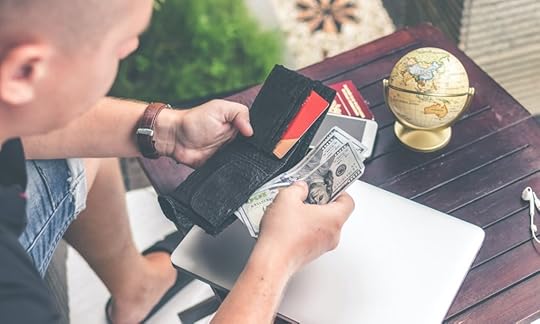
There is an important difference between values and ethics. In fact, I have found the distinction to be incredibly helpful in my understanding of finances.
Ethics, defined, is a system of moral principles.
Values, defined, is relative worth, merit, or importance.
Ethics deals with right and wrong. But values deals with what is important to a given person.
Hypothetically, if we were all getting our ethics from the same source, they would not change from one person to another—what is right or wrong for you, would also be right or wrong for me.
Values, on the other hand, could vary significantly from one person to another. You may value security; I may value freedom. One person might value hospitality, another person might value travel, while someone completely different values compassion.
None of those values are inherently right or wrong, they are just different. Each person simply places more worth (or value) on one than the other.
The difference between ethics and values prompts a unique question in my mind—one that I’ve been wrestling with for quite some time.
Specifically, what is the role that ethics ought to be play in my personal finances?
What is right and what is wrong in how one pursues, accumulates, and spends money?
Most people, it seems to me, have a broad definition that they use to answer that question.
We apply broad ethics to our finances. Things like:
It is wrong to steal money. It is wrong to extort money. It is wrong to bribe with money. It is wrong to be jealous of others. It is moral and right for me to help others financially when I am able to do so.
These are financial ethics that most of us apply and adhere to in our lives and to our pursuit, accumulation, and spending of money.
So we do routinely apply ethics to our finances—but only in very broad terms. Beyond that broad application, we don’t tend to get particularly detailed in our pursuit of financial ethics.
Instead we tend to make our every day financial decisions based on values rather than ethics.
So we don’t ask detailed questions that sound like this:
Is it wrong for me to spend this much money on a car? Is it wrong for me to buy this size of house?What is my moral obligation to pay off debt rather than spend on myself?Is it okay for me to make this much money?What is an ethical amount of money I should be saving this month?What is an ethical amount of money I should give to help others?Is there a moral question to be asked in how much (or how little) I am paying for this service?
Most of us, myself included more often than I’d like to admit, do not ask those ethical questions of our everyday financial decisions. Instead, we base our decisions on values:
I want x, and I have the money to buy x, so I am going to buy it.This is important to me, so I am going to spend money on it.My goal is to have this much money in the bank, so I am going to keep everything for myself until I reach that number.I want to make as much money as possible, and here’s how I can do that.
You see how that works? Values guide our financial decisions, not ethics.
Except for one place…
When it comes to others, we are quick to apply a filter of financial ethics that we rarely ask of ourselves.
This is particularly prevalent today in our opinions of those with more.
We live in a society that is quick to discern and identify those with more who are not applying ethics to their financial circumstances. At least, in our opinion, they are not being guided by ethics.
So we are quick to make moral judgements that they…
—should not have that much money.
—should not spend their money in that specific way.
—should not buy x.
—should spend more money on y.
—should be giving away more.
—shouldn’t be driving that kind of car.
—shouldn’t be living in that big of a house (or owning that many houses).
—are selfish because they have z.
Because they are not spending their money in the way we believe they should be spending their money, they are greedy or selfish or immoral.
Meanwhile, the person’s financial ethic we should be most concerned about is our own.
We are quick to place a filter of ethics on others’ decisions, but rarely apply those same filters to our own.
Indeed, ours is the only pocketbook and bank account we have control over. Rather than spending time concerning ourselves with others, we ought to focus intently on our own personal financial ethic and how to apply it to our unique financial circumstance.
After all, ours is the only pocketbook and bank account that we will have to give an account for at the end of our lives.
Am I proud of how I pursued, accumulated, and spent my financial resources? This is a question that we will all face at the end of our lives.
We can be proud knowing that we lived a life aligned with our values. But an even greater amount of pride can be found knowing we lived what was right and moral and ethical.
The person’s financial ethic we should be most considered about is our own—not someone else’s.
We have enough ethical questions to be asking ourselves anyway.

May 25, 2020
12 Ways My Life Has Changed After 12 Years of Minimalism

Memorial Day is a holiday in the United States where we pause to remember those who died in active military service. May nothing I write in this article overshadow that fact…
On a purely personal level, readers of this blog will know that Memorial Day weekend signifies something completely different in my life and my family’s life.
It was on Memorial Day weekend, 12 years ago, that I was first introduced to the concept of minimalism and my life changed forever. You can read my story here or watch it here.
In the last 12 years, my life has changed dramatically because of minimalism. As I sit down to reflect, here are some of the most significant changes that have taken place.
12 Ways My Life Has Changed After 12 Years of Minimalism:
1. I own less.
I have never counted my things—never wanted to actually. But when we first made the decision to become minimalist, we easily got rid of 60-70% of our things.
A lot has changed since then. We’re in a different season of life. Most significantly, my kids are now 17 and 14 (rather than 5 and 2) and with their growing bodies and growing independence, different possessions have come and gone over the years. So I would never try to guess on a % at this point.
But we still own much less than when we started this journey—and I can’t even begin to imagine how much stuff we would own if we hadn’t been pursuing minimalism these last 12 years.
2. I live in a smaller home.
We moved 9 years ago from Vermont (where my minimalism story began) to Phoenix, AZ. When we did, we bought a smaller home than we lived in before. We knew the neighborhood where wanted to live and waited for the smallest model of home to become available.
We bought a smaller home for numerous reasons and have never regretted that decision—even as our children have grown.
3. I have more money in savings.
I suppose, as you grow older, it would be expected that you would have more money saved and more money in your retirement accounts. But that is clearly not the case for every American. For us, however, it is.
While my income has increased from 12 years ago (as would be expected), my expenses have significantly decreased (see Point 1 and 2 above). Because of that, we’ve been able to save more than if our expenses had remained the same.
4. I am more generous.
Somewhere along this journey, someone thought our story should be put into a book. So 5 years ago, we signed a book contract to write two books (The More of Less & The Minimalist Home).
Because this blog was covering our modest financial needs, we used the book money to start The Hope Effect, a nonprofit organization changing how the world cares for orphans that is currently working in 5 cities around the world to make a difference for orphaned children.
Earlier this year, we exceeded $1M raised to help orphaned children find families. This is something that would never have happened had it not been for minimalism 12 years ago.
5. I have better habits in my life.
Minimalism in my possessions resulted in countless other lifestyle changes in my life. When I became intentional with my belongings, I also became intentional with other daily practices: how I spend my time, how I care for my body, and how I seek to make the most of my life.
Would some of these habits of eating healthier, exercising more, and writing more have happened anyway in my life? Possibly, I suppose. But minimalism certainly brought them about sooner.
6. I don’t try to impress people with the things that I own.
12 years ago, I had three bookcases full of books in my office, even though I read less than half of them.
I remember one afternoon after finding minimalism looking at the shelves and realizing, “I keep these books only because they look impressive. I’m literally using unread books to impress people when they come in my office.”
It was a lightbulb moment for me.
I also realized, as I looked around my office, I had hung my diplomas on the wall behind me for that exact same reason. Now, I realize there are other people who have those items in their office for reasons other than the ones I recognized in myself.
But it was a significant changing point in my life when I recognized how I was trying to use stuff to impress others… rather than trying to impress people with the life that I lived.
I no longer try to impress people with the things that I own—whether it be books, clothes, cars, houses, or technology. There are much better, and more fulfilling ways to make an impression on peoples’ lives.
7. I have more time.
Excess possessions are a burden on our lives and schedules. They require cleaning and maintenance and organizing and repairing and replacing.
And that doesn’t even begin to mention all the time we spend working, just to make the money, to spend the time shopping, to buy the things that we bring home to clean and organize and manage and maintain and ultimately replace.
Owning fewer possessions has freed up my life for more important uses of my time. And removing the pursuit of accumulating possessions has freed up even more time.
8. I see the entire world differently.
I see culture differently. I see society differently. I see advertisements differently. I see marketing differently. I see shopping differently. I see money differently. I see work differently. I see people differently.
The way I see the entire world has changed dramatically since beginning to live a minimalist lifestyle. And that is no exaggeration. The way you see the world will change as well.
9. I have a new career.
12 years ago, I was a pastor and loving every minute of it. I had not chosen the job to get rich, I had chosen the career to make a difference in peoples’ lives.
As this blog grew and the time demands continued to increase, I was faced with a choice: choose one or the other. So seven years ago, I changed my job and the good I try to bring into this world.
BecomingMinimalist.com has been my full-time career for the last seven years. And I have no intention of quitting anytime soon. I love what I do.
10. I have seen much growth in the minimalist movement over the last 12 years.
When I started Becoming Minimalist 12 years ago, I don’t know of any other blogs or websites dedicated solely to minimalism. There were people writing about minimalism (Leo Babauta comes to mind), but nobody writing about it solely.
But over the last 12 years, things have changed dramatically. There are now countless blogs dedicated to minimalism. There are also countless YouTube channels, books, and social media accounts. You can even find a documentary on Netflix.
I am grateful that the movement continues to grow and stand proud with all the other writers and creators who have helped proclaim the message of living more by owning less.
11. My faith has grown.
My faith has always been important to me. As I explain in The More of Less, my spirituality has greatly influenced my understanding and practice of minimalism. But equally so, minimalism has influenced and grown my personal faith.
I have learned lessons about the intersection of faith and myself, the world, money, and possessions that I could not have learned through any path other than minimalism.
12. I love helping others own less.
Minimalism, at first, was just a personal journey. In fact, this blog, that now reaches 1-2M readers every month was started as just a personal diary. I wrote about cleaning out my office and closet, and the time I threw out my wife’s Jell-O molds.
But along the way, my focus changed. Rather than writing about my own journey, I began using this space and my experience to help others own less and live more.
Over the last 12 years, I’ve written four books, engaged with social media, started a magazine, created an app, and launched a YouTube channel. Always with one goal in mind: help others discover and embrace minimalism.
I love the work that I do. And none of it would have happened without discovering minimalism, 12 years ago today.
Thank you so much for being a part of it.

May 21, 2020
How to Stay Focused on the Good

There are two competing forces that stir up discontent within us.
On one hand, we live in a society and economic system that runs on discontent. From start to finish, businesses work hard to fuel within us a desire for more or different.
We’re constantly told to keep up with changing fashions, upgrade technology, desire this new automobile, even change the exterior of our appliances—all because we are missing out on something “better” if we don’t.
Influencers on every channel and social media outlet keep us guessing, and then informed, about what we’re missing out on. From the palm of our hand, they hold us in theirs.
As a result, we become discontent. We wish we had more, better, or different. We chase new looks and appearances, diets and fitness trends. We travel to new places, check out the newest destinations, or can’t wait to eat at the hottest new restaurant.
Every time, we find ourselves desiring something we don’t currently have. We become focused on what we don’t have, and lose focus on the good that we already do.
Of course, these external forces don’t function in a vacuum. They connect with an inner voice of discontent already inside us. Discontent is stirred up both inwardly and externally.
Hedonic adaptation is the phrase that sociologists give to this tendency. Essentially, hedonic adaptation is the observed tendency of humans to quickly return to a relatively stable level of happiness despite major positive or negative events or life changes.
In other words, regardless of what we acquire or the life changes that occur, we slowly revert to the same level of happiness that we had before the change occurred.
If I thought more stuff would make me happier and would ultimately resolve my discontent, I would be mistaken. If I was discontent with my life before, I will eventually be discontent later—even after acquiring the desired item.
If, as humans, we believe a greater level of happiness can be discovered by simply acquiring something new or changing our circumstances, we will always be disappointed. Our internal voice will never be satisfied in this way.
In this way, both inwardly and externally, discontent is continually being stirred up in our heart and mind and soul.
What happens as a result of this discontent is we quickly lose sight of the good around us. That’s the very definition of discontentment: a dissatisfaction with one’s circumstances.
In our bank accounts, we never have enough.
With our possessions and property, we always desire more.
With our bodies and appearance, we desire something different.
Within our jobs, we dream of something better.
In our marriages, we begin to focus on all the things we’d like to change.
Nothing is ever good enough…. because discontent is constantly being stirred up inside us.
But look around. There are so many good things around you!
And recognizing them is the first step to changing your attitude and discovering contentment in your life.
So how do we do it?
What intentional steps can we take to stay focused on the good?
Let me offer five:
1. Say it out loud.
The next time you are alone—at work, in the car, in the shower, or maybe right now, say this sentence out loud:
“You know what, I’ve got it pretty good.”
Don’t just think it, say it. Every time I say that sentence, I can’t stop with those words. I feel compelled to say more—continuing the thought rolls naturally off the tongue. I begin to immediately list something I have that is good.
It usually sounds something like this:
“You know what? I’ve got it pretty good…. I have a job that I enjoy, I have clothes on my back, I’ve got my health, I love my wife, I enjoy my kids…” and the list continues.
Give it a shot. The next time you are alone, see what immediately follows those words, “You know what, I’ve got it pretty good…”
2. Practice gratitude, daily.
Gratitude is best understood as a discipline, not an emotional response to circumstances. So practice it, every day. In a way that makes sense to you.
You can practice gratitude with your morning coffee, on your daily commute, during your prayer time, meditation time, or yoga session.
You can practice gratitude when you lay your head on the pillow or before you enjoy a meal with your family.
The important thing is to do it. The practice will immediately draw your focus to the good.
3. Remember what you liked in the first place.
Life isn’t perfect—it never has been and never will be. There is no perfect job, no perfect house, and no perfect marriage. Even the roses have thorns.
Over time, it seems, our natural tendency is to focus on the negatives rather than the positives. It seems to be the natural pull on our brains. But we can reverse this tendency by intentionally rolling back the clock in our mind.
For example:
What drew you to that job in the first place? What did you love about it when you first started? What are the qualities that drew you to your spouse initially? Why were you excited about the house/apartment the first day you moved in?
When you remember what you loved about your circumstance in the first place, you are again focusing back on the good.
4. Remember the positives.
When I talk about relationships with people, the question always seems to arise, “How do I get my spouse to be more ________ and less ___________?”
There’s a conversation to be had there, for sure. But I never begin the conversation by talking about how to change a spouse. Instead, I work hard to focus first on the positives.
Before we can talk about changing our spouse into the person we want them to be, we need to remind ourselves of all the good they bring into our lives.
Maybe they don’t clean up enough around the house, but are they the first to bring laughter into your home?
Maybe they aren’t as adventurous as you want, but do they bring a needed stability into your life?
Maybe they aren’t ____________, but are they ____________?
This same principle can be applied to so many circumstances in life.
Maybe my car isn’t fancy, but it’s paid for.
Maybe my house isn’t the biggest on the block, but it is the easiest to clean.
Maybe my job isn’t perfect, but it’s stable and I’m good at it.
In almost every case, there are positives to be found if we look for them.
5. Wage war against if/then thinking.
Work as hard as you can to live the best life that you can live. Never settle for anything less than being the best you that you can possibly be.
But don’t fall for if/then thinking along the way.
If/then thinking goes like this:
If x happens, then I will be happy.
This is dangerous thinking with no winners. It only spurs regret and discontent. There is no happiness to be found in it, because there is no finish line to the thought process.
If life can always be improved by changing or adding x, we will never be able to appreciate today for what it is.
Again, this doesn’t mean we become complacent and no longer strive to be the best version of ourselves. It just means we stop looking for happiness in changed circumstances and begin to appreciate all that we have today.
The battle in our mind to focus on the good is ever-present, but there certainly appear to be times in life when that battle is tougher than others.
If you are struggling to find the good in your life today, try out a few of those steps above.
You might be surprised to discover how good you actually have it.




